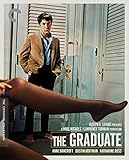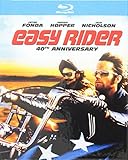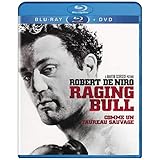The advance obituary is an odd little literary mongrel. If it involves an interview, there is a tacit understanding between the interviewer and the subject that the substance of the interview, like the story of the subject’s life, won’t see print until the subject has had the decency to drop dead.
Most subjects take this in stride, part of the price of being a noteworthy person. For instance, when I interviewed Keith Botsford, a longtime friend and collaborator of Saul Bellow’s, for a planned New York Times obit, he was cordial, forthcoming, witty. The man was a born storyteller, and he was obviously delighted to be given one last chance to tell the story of his life in his own way. Four years after that interview, Botsford died at 90, and the obituary ran last summer.
I had a very different experience when I got assigned to write the advance obit of Robert Towne, now 85, the screenwriter who won a Best Original Screenplay Oscar for Chinatown in 1975. When I called Towne’s agent in Los Angeles to ask if he could arrange a telephone interview, the man was aghast. “That’s so morbid!” he said. “I would never ask Robert to agree to be interviewed for his own obituary. What are you thinking?” As I hung up the phone, I was thinking that people in Lala Land are all soft in the head. I wrote the obit without ever talking to Towne.
 Towne also declined to be interviewed for Sam Wasson’s absorbing new book, The Big Goodbye: Chinatown and the Last Years of Hollywood. The book is built on the premise that Chinatown is more than one of the greatest American movies ever made; it was the pinnacle of an era that was about to vanish, the so-called New Hollywood, when directors took over the industry and put out a blizzard of brilliant, idiosyncratic movies before the suits regained control and started cooking up the tedious blockbusters, franchises, and special-effects comic book yarns that audiences are still being fed today.
Towne also declined to be interviewed for Sam Wasson’s absorbing new book, The Big Goodbye: Chinatown and the Last Years of Hollywood. The book is built on the premise that Chinatown is more than one of the greatest American movies ever made; it was the pinnacle of an era that was about to vanish, the so-called New Hollywood, when directors took over the industry and put out a blizzard of brilliant, idiosyncratic movies before the suits regained control and started cooking up the tedious blockbusters, franchises, and special-effects comic book yarns that audiences are still being fed today.

 To make his case, Wasson gets into the minds of the four men who shaped Chinatown: director Roman Polanski, still reeling from the murder of his wife Sharon Tate by the Manson gang; male lead Jack Nicholson, stepping into his first starring role; legendary producer Robert Evans; and Towne, whose Oscar win for Chinatown was sandwiched between nominations for his scripts of The Last Detail and Shampoo. Nicholson also declined to be interviewed by Wasson, as did the female lead, Faye Dunaway, after asking how much “participation”—money—was in it for her and learning the answer was zero.
To make his case, Wasson gets into the minds of the four men who shaped Chinatown: director Roman Polanski, still reeling from the murder of his wife Sharon Tate by the Manson gang; male lead Jack Nicholson, stepping into his first starring role; legendary producer Robert Evans; and Towne, whose Oscar win for Chinatown was sandwiched between nominations for his scripts of The Last Detail and Shampoo. Nicholson also declined to be interviewed by Wasson, as did the female lead, Faye Dunaway, after asking how much “participation”—money—was in it for her and learning the answer was zero.
These rebuffs didn’t derail Wasson. He interviewed Polanski and Evans extensively, along with a small army of friends, lovers, enemies, collaborators, ex-wives, and children of his four principals. He freely dipped into the seemingly bottomless well of Hollywood biographies, memoirs, and celebrity interviews. The result is a rich, knowing portrait of the making of a single movie that manages to pull back and give a wide-focus view of an entire industry at a peak moment, just before the deluge. Wasson writes beautiful sentences (along with a few purplish ones), and he is an astute chronicler of Los Angeles and its weather and flora, its social strata and geography and history and light. While struggling with his Chinatown script, Towne revisits his boyhood hometown, the blue-collar fishing port of San Pedro, and finds it largely unchanged. Wasson writes:
The brick buildings of Beacon Street, Whispering Joe’s and Shanghai Red’s, the tattoo parlors, the ferry to Terminal Island. He stood listening at the waterfront, where as a boy he’d watched the tuna fishermen set off to sea and, as a young man one summer, set off with them. He watched his childhood home on Sixth Street and revisited his earliest memory, sitting in the backyard by the paint-splattered Philco radio, listening to Seabiscuit win yet another race.
Yes, when it comes to portraying the textures of Los Angeles and its major industry, Wasson is in a league with Nathanael West, Bruce Weber, David Thomson, and Joan Didion.
Much as I loved Wasson’s portraits and his accounts of the battles on both sides of the camera during the making of Chinatown, the book’s most startling revelation was about what happened before the cameras started to roll. My earlier research of Towne’s life for that advance obituary had alerted me to the extensive rewriting Polanski contributed to the script, most notably the ending. As written by Towne, the femme fatale, played by Dunaway, shoots her incestuous father, played by John Huston, and regains custody of their daughter. A happy ending, sort of, as evil is punished. Polanski, a survivor of the Holocaust with fresh memories of his wife’s horrific murder, needed something darker. After director and screenwriter fought like a couple of tomcats over the proposed revisions, Polanski’s version wound up on the screen: on a night street in Chinatown, a cop shoots Dunaway through the head as she tries to flee with her daughter, and the father makes off with the fruit of his incest. Evil goes unpunished. Much darker, and much better.
Wasson tops that story with the stunning revelation that Edward Taylor, a former college roommate and frequent collaborator of Towne’s, contributed extensively to the Chinatown script long before Polanski started putting his fingerprints on it. “Towne referred to Taylor as ‘my editor,’” Wasson writes, “but rarely spoke of his existence to anyone in Hollywood.”
Then this:
As in any partnership, the attribution of creative input remains an inexact science…and considering that most creative partnerships, like (Ben) Hecht’s and (Charles) Lederer’s, are properly credited on screen, there is rarely any need to investigate the question of authorship. It is openly shared. But in the case of Edward Taylor, whose intimate and ongoing involvement in the conceptualization and production of Towne’s screenplays, whose cache of Chinatown notes—stacks of legal pads filled with Taylor’s original scenes, plans for restructuring subsequent drafts, long swaths of dialogue, character sketches, synopses of projected material, and more—and whose in-person and on-phone discussions with Towne on a sometimes daily basis reveal him to be a generative intelligence, invited not merely to respond to the work as an editor would, but to participate in the creation and evolution of a script moment by moment from the project’s inception, reveal Taylor’s influence to be no different from that of any other co-creator—save for one thing: Towne held the veto power.
This open secret among the people close to Towne and Taylor led many of them to ask the inevitable question: why didn’t Taylor insist on a screenwriting credit, and the money that would flow with it? When Taylor’s stepdaughter implored him, “What are you doing? You can’t not get credit. It’s not fair and it’s not accurate,” he replied: “That’s not important. What’s important is my friendship with Robert.”
Wasson is left to speculate what was behind Taylor’s selfless, undying allegiance to his friend. Was it because Towne had rushed Taylor to the hospital when Taylor’s appendix burst, probably saving his life? Was it because Towne helped him through the aftermath of a former girlfriend’s suicide? Or because Towne arranged an abortion for another girlfriend? Or was it that fame and fortune simply didn’t matter to bookish Edward Taylor?
If there was an answer, it went to the grave with Taylor, who died on Feb. 12, 2013. For his part, Polanski had no interest in fighting Towne for a credit for his contributions to the screenplay. “Not my style,” Polanski told Wasson.


 Though Wasson was unable to locate the motivation behind his book’s big reveal, The Big Goodbye yields abundant pleasures. Wasson takes us inside the minds of people as they struggle and fight and cooperate to make a movie masterpiece. We watch Chinatown’s production designer, Richard Sylbert, as he scouts locations, trying to find echoes of vanished 1930s Los Angeles, before the big migration and the freeways and the smog. Like Polanski, Sylbert is a perfectionist, no detail too small to merit his attention. We learn that Sylbert, who won an Oscar for Who’s Afraid of Virginia Woolf?, hand-selected every book on George’s shelves for that movie. Such care produced a seamless visual structure in all of his work, including Rosemary’s Baby, The Graduate, and Carnal Knowledge.
Though Wasson was unable to locate the motivation behind his book’s big reveal, The Big Goodbye yields abundant pleasures. Wasson takes us inside the minds of people as they struggle and fight and cooperate to make a movie masterpiece. We watch Chinatown’s production designer, Richard Sylbert, as he scouts locations, trying to find echoes of vanished 1930s Los Angeles, before the big migration and the freeways and the smog. Like Polanski, Sylbert is a perfectionist, no detail too small to merit his attention. We learn that Sylbert, who won an Oscar for Who’s Afraid of Virginia Woolf?, hand-selected every book on George’s shelves for that movie. Such care produced a seamless visual structure in all of his work, including Rosemary’s Baby, The Graduate, and Carnal Knowledge.
Sylbert’s sister-in-law Anthea Sylbert, Chinatown’s costume designer, was equally obsessive. And it didn’t stop with how she dressed the cast. “I used to even think about what was in their pockets,” she said. “There are those people who have one key. There are those people who have three keys. There are those people who have five keys. They’re different and they come from different places.”
“To Polanski,” Wasson writes, “there were no minutiae.” And so we watch him trying to coax an ant across supine Jack Nicholson’s face, and yanking an unruly hair out of Faye Dunaway’s scalp (shrieking ensued), and obsessing over camera movements and lighting.


 Some of this has been told before, notably in Peter Biskind’s superb Easy Riders, Raging Bulls: How the Sex-Drugs-and-Rock ’n’ Roll Generation Saved Hollywood. Biskind posits that the New Hollywood began with 1969’s Easy Rider and ended with 1980’s Raging Bull, which puts his chronology modestly at odds with Wasson’s. “In retrospect,” Wasson writes, “1974 represents the final flowering of a film garden passionately tended by liberated studio executives and an unspoken agreement between audiences and filmmakers.” No matter. Both writers agree on Biskind’s obituary of that scorching golden age: “The fact of the matter is that although individual revolutionaries succeeded, the revolution failed. The New Hollywood directors were like free-range chickens; they were let out of the coop to run around the barnyard and imagined they were free. But when they ceased laying those eggs, they were slaughtered.”
Some of this has been told before, notably in Peter Biskind’s superb Easy Riders, Raging Bulls: How the Sex-Drugs-and-Rock ’n’ Roll Generation Saved Hollywood. Biskind posits that the New Hollywood began with 1969’s Easy Rider and ended with 1980’s Raging Bull, which puts his chronology modestly at odds with Wasson’s. “In retrospect,” Wasson writes, “1974 represents the final flowering of a film garden passionately tended by liberated studio executives and an unspoken agreement between audiences and filmmakers.” No matter. Both writers agree on Biskind’s obituary of that scorching golden age: “The fact of the matter is that although individual revolutionaries succeeded, the revolution failed. The New Hollywood directors were like free-range chickens; they were let out of the coop to run around the barnyard and imagined they were free. But when they ceased laying those eggs, they were slaughtered.”
And now, 45 years after the slaughter, we learn that Robert Towne’s Oscar needs an asterisk.
The post Does Robert Towne’s ‘Chinatown’ Oscar Need an Asterisk? appeared first on The Millions.
Source : Does Robert Towne’s ‘Chinatown’ Oscar Need an Asterisk?









